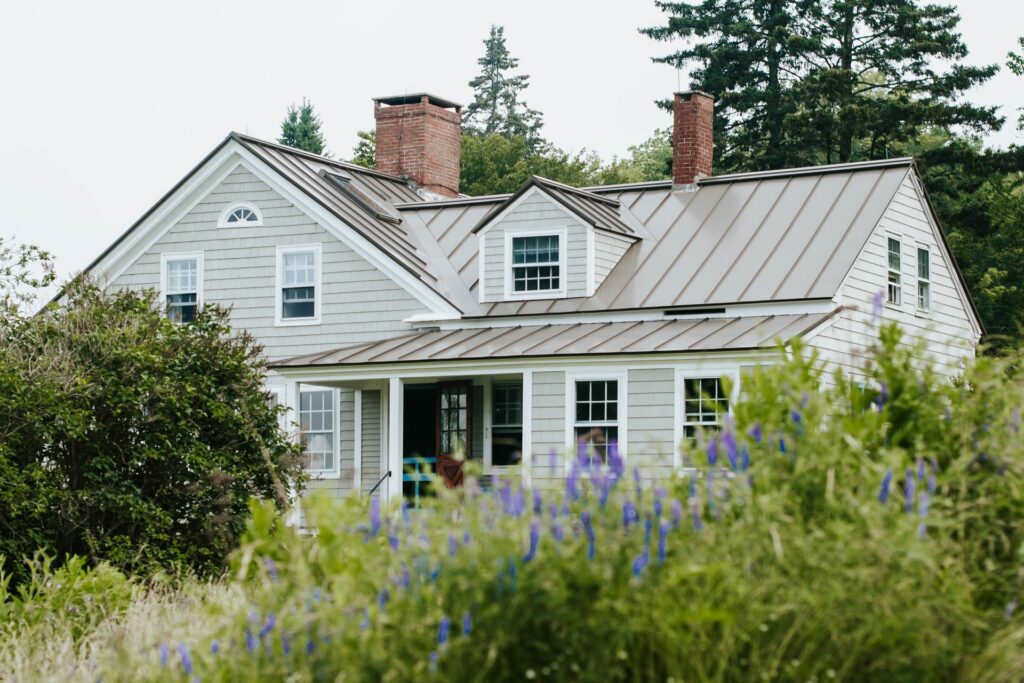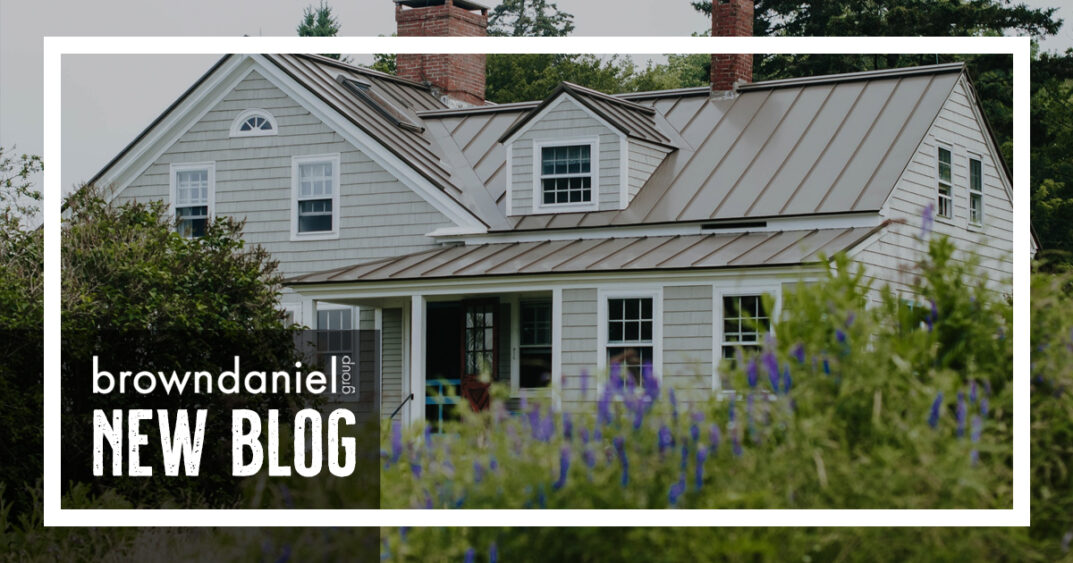
Home prices are still at an all time high and the inventory of available homes continues to struggle in many areas across the country. New builds are pricier than ever, and supply chain issues continue to prolong the time it takes to complete a new home once you find just the right location to build. These issues are leading many prospective home buyers to consider purchasing an older home that needs significant work to bring it into a pleasant, livable condition. There are many things to consider if the idea of buying a fixer-upper is beginning to appeal to you. The process of renovating a fixer-upper can be an exciting adventure, allowing you to grab a neglected property at a significant discount, and then through your own hard work, turn it into your dream home. While this can be a very rewarding way to end up with your ideal home, there are important pros and cons for you to weight out before diving into such a significant investment of both your time and money.
Benefits to Purchasing a Fixer-Upper

Savings: The biggest reason that many people consider purchasing a fixer-upper is doe the significant cost savings when you compare the house you believe you will end up with to similar houses that are already fully renovated or newly built. The price difference when you compare a distressed property to move-in ready homes in the same neighborhood is staggering. A fixer-upper is an investment, and once your repairs and renovations are complete you can expect to see a substantial increase in your property value thanks to your efforts.
Return on Investment (ROI): While we are talking about money, it’s important to think about the potential returns you will see when you invest time, effort, and money into renovating a fixer-upper. This return is called the “ROI” and if you handle your renovations appropriately, you have the potential to reap substantial rewards. Once you have updated the property and increased its value, you will increase the equity you have in the home. This means that if you decide to sell the home in the future, you stand to make a generous profit. Until that point, while living in the home, you will have much more equity if you decide to refinance your mortgage or take out a line of credit against your equity. A well-executed renovation can be a big money-maker when and if you decide to sell.
Customization: Move-in ready homes are great, but unless you are purchasing a new build, you don’t have much say in certain aspects of the home’s appearance, such as countertops, paint colors, flooring and cabinets. In fact, you might end up paying full price for a home that is in great shape, and then still spend a fortune making the changes needed to have the home fully suit your tastes. On the other hand, buying a fixer-upper gives you the freedom to customize your home in any way you like as you make the needed repairs and renovations. Choose your own paint colors or wallpaper, pick out your preferred kitchen cabinets – you will be the one creating your dream home. You may even be able to change the layout of the home to better suit your needs depending on how much work the house needs. Your own personal tastes will be more easily and quickly reflected than it would be in a move-in ready home.
Adventure Experience: Purchasing a fixer-upper and then renovating it to your specifications can be an exciting learning experience, and a true adventure as you tackle bigger and more detailed projects. Especially if you are doing a lot of the work yourself, you will be learning and growing your skill set when it comes to home improvement, design and decor. You will likely need to learn basic carpentry, plumbing and even project management, along with budgeting on a much larger scale than you may be used to. The adventure of renovating a fixer-upper can be a rewarding experience.
Reasons You May Not Want to Take on a Fixer-Upper

Budgeting Concerns: One of the common issues home buyers encounter when they purchase a fixer-upper is underestimating the amount of money it will take to make the repairs and renovations necessary to make the house your dream home. Even if you are experienced with tackling the budget for major home improvement projects, there is always a chance that unforeseen issues will arise during renovation, leading to expenses that are much higher than what you anticipated. These unexpected problems could even negate the savings you gained from purchasing a cheaper house that needed repairs, meaning you might have saved money by purchasing a much more expensive home. It’s absolutely vital that you do the appropriate amount of research so that you can create a realistic budget for all of your repairs and renovations. You should also set plenty of money aside so that you have a contingency fund to cover any unexpected circumstances. Proper financial planning has never been more important than when you are shopping for a fixer-upper, in order to avoid overextending yourself financially.
Time and Effort: If you purchase a move-in ready home, you only need to spend your time and money moving your things in and making minor decor changes, then your home is ready to be lived in. However, renovating a fixer-upper requires a significant investment of your time and effort. If you are doing a lot of the work yourself, you will pay in blood, sweat and tears in addition to your finances. Even if you hire professionals to do most of the renovations, you will still be consumed with the planning process, from shopping for a contractor and picking out materials, to scheduling workers and deliveries. If you already have a busy schedule, or if you lack significant experience in home improvement, the mental load of this may be more than you can handle.
Stress and Inconvenience: Will you be living in the home while you are renovating? Living in a construction zone isn’t easy, and can actually be quite stressful due to the loud noises, messy areas and having people coming in and out of your home doing work. At times you may not be able to use your kitchen, your bedroom, or your preferred bathrooms. There could also be service interruptions of your electricity, water, internet and cable. These inconveniences may be particularly challenging if you also work from home, and do not have an office to escape to. Make sure that you have a clear plan in place to minimize the impact renovations will have on your day-to-day routine.
Hidden Problems and Surprises: You may think you have done all of the necessary research so that you know everything about the fixer-upper you are looking at before you buy it, but surprises still frequently arise with this time of home. Distressed properties often come with hidden problems that may not be apparent during the initial inspection. Some of those surprises may be easy to take care of, but others, such as structural issues, plumbing or electrical problems, and issues with the foundation can be prohibitively expensive and may take a lot of time and work to fix. They may also make the home unable to be lived in while the work is completed. It’s essential that you have a professional conduct a thorough inspection to assess the needs of the property before making a purchase. You should also have a plan in place for unexpected issues, both in terms of finances and how you will schedule the surprise repairs.
Bottom Line
Buying a fixer-upper may just be the best way for you to afford your dream home in the current real estate climate. The process of transforming a distressed property into the exact vision you have for your home can be a rewarding endeavor for anyone willing to invest a great deal of time, effort, and resources into the process. The affordability, customization options, and potential return on investment are worthwhile benefits that may outweigh the serious considerations one must make when deciding to jump into the stress of a full house renovation. As long as you are knowledgeable and able to carefully consider the possible challenges that can arise, and as long as you are able to manage the time commitment, budgeting considerations, and potential unknowns, a fixer-upper may be the perfect house for you.

